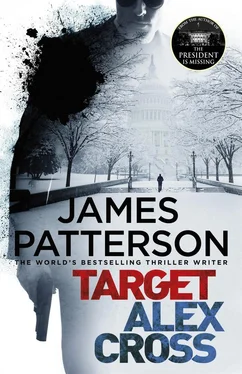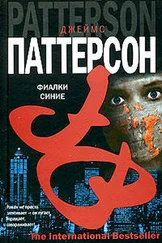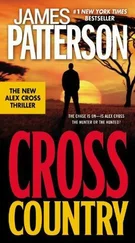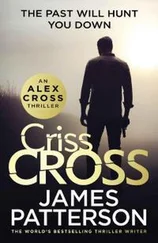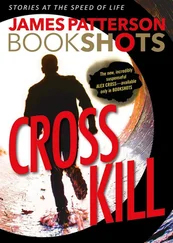“I think we have a duty to investigate that possibility, don’t you?”
President Larkin spoke to the nation from Air Force One at nine p.m. eastern time.
Mahoney and I watched it on the big screens in the hangar. In the immediate run-up to the speech, the media noted that in city after city across America and despite the imposition of martial law, tens of thousands of young people had shown up in public places carrying flags and waiting to watch Larkin on their mobile devices.
When Larkin came on, he was grave, not at all the crusader he’d once been.
“My fellow Americans,” he began. “I come to you in a time of peril. We have been attacked in an effort to destabilize our great nation. The assassinations of our president, Speaker of the House, the secretaries of state and the treasury, and the assassination attempt on the secretary of defense are acts of war on America and its people, and those acts will not go unanswered.”
Larkin said this last with such deep intensity and resolve that I was having trouble seeing him as part of a great plot to take power. But he’d been such a brash and ambitious man when he was younger. Could leopards change their spots?
The acting president went on, outlining the steps being taken to identify the assassins and the people behind them. He asked for calm while the investigative team did its business.
“I know the idea of martial law in the United States is a frightening one,” Larkin said. “But I believe it is necessary if we are to get to the heart of the matter fast and understand the identity of our common enemy. Until then, we cannot respond. Until then, we are in pure defensive and investigative modes.
“I never sought this office. I believed I had reached the pinnacle of my career as your attorney general, and I was proud of my performance there. But now this responsibility has come to me, and I promise each and every one of you that I will try to make the best decisions for the survival of our great nation and our way of life.”
He paused to smile a bit and nod his head. “Now, I’m not saying I won’t make mistakes or act in ways that you disagree with. But if I make a mistake, I’ll take responsibility, and if I act in ways that you don’t agree with, I’d ask you to give me a little time. There’s a method to my madness.
“Good night, and God bless the United States of America.”
The screens went dark and then jumped to various anchors and commentators, who were quick to describe the nation as being “under siege” and “ramping up for combat.”
“What’d you think?” Mahoney asked.
“I thought it was a little odd that he said there was a method to his madness, but otherwise, it was calming. I felt like the guy was trying to do what he said he would.”
Ned glanced up at the screens, where pieces of Larkin’s short speech were being replayed. “I hope you’re right, Alex,” he said. “Because if you’re wrong, whatever trust people have left in Washington will evaporate, and God only knows what could happen after that. Riots. Chaos. Lawlessness.”
“Not if we catch who’s behind it all,” I said.
Past midnight and beneath a chill, driving rain, a pile of leaves stirred in a gully in Rock Creek Park, below Twenty-Sixth Street. A hand emerged slowly and pushed the sopping dead leaves off the cowl of dead skin Pablo Cruz still wore.
The skin and the jacket had kept his upper body mostly dry, but when Cruz sat up, he was drenched from the waist down and using every breathing skill he knew to keep his core warm.
His feet were numb, and when he stood, his knees were stiff. The narcotics the doctors had given him were wearing off. His face ached. His broken teeth screamed.
An ordinary man might have succumbed to hypothermia by now. A weaker man might be focused on finding drugs to kill the pain.
But Cruz was neither ordinary nor weak. He’d long ago trained himself to be a superior man, one who could control his emotions, mind, and pain. Whatever it took to survive, he would do, and he would deal with the physical damage later.
The assassin peeled off the cowl of skin and buried it before he crawled out of the gully about three-quarters of the way up the slope above the creek bed. Blue lights flashed far to the northwest, down through the trees, down there on the parkway.
Forcing his mind to his contingency plans, Cruz figured he had only one chance of getting out of the nation’s capital alive. He’d heard all the sirens heading toward the hospital and seen the roadblocks at the bridges to Virginia from a distance.
Cruz expected that all major and minor roads leading out of the District were now closed. The Metro was down. He hadn’t heard a plane in the sky in hours. Few cars had passed, and even fewer helicopters were flying in the relentless rain.
He traversed north along the muddy slope, using the shadows thrown by streetlights and buildings up on Twenty-Sixth to make out downed logs and low-hanging tree branches. He reached the M Street bridge and crawled through the brush and up the side of the embankment by the abutment.
Above him on the bridge, he heard two distraught-sounding women hurrying toward Georgetown and talking about President Hobbs’s death. Cruz allowed himself a moment of congratulation, a mental pat on the back for a job not only complete but well executed. All in all.
He considered climbing the rest of the way up to the street and just crossing it with his head down to the rain, the way he imagined the women who’d just passed him had done. But instinct overruled the idea. He scrambled back down and beneath the bridge.
Cruz stopped there when he heard a mechanical noise in the distance. Tanks!
They were bringing in soldiers and tanks. Of course they were. Larkin had declared martial law, hadn’t he?
For a moment, the assassin felt unnerved. It was one thing to evade police and even federal agents, but an army?
It won’t be an army, he told himself. They’ll be brought in as a presence, a threat. There won’t be a soldier on every corner. Or will there?
Cruz shook off the questions. In dire situations such as this, he’d always found it better to stick to the plan and execute it rather than ponder it to death.
He kept on to the north of the bridge where Twenty-Sixth hit that dead end. When he climbed up to the edge of the park, he could see back to M Street, where one tank had blocked the entrance to the bridge. A second was continuing on toward Georgetown.
Cruz crept across the slope, peering up at the lights in the nearest apartment building, then focusing on two windows on the third floor on adjacent walls of a corner. When he got the angle right, and still watching those two windows, he slid down the hill and shuffled his feet through the leaves, wondering if the dry bag could have been found by a kid exploring in the park or by a nosy dog. Or maybe the rain had flushed the drain cover off and then out and...
His heel found the edge of the corrugated drainpipe, which was belching water. Cruz got around and below it, felt for the edge of the cover, and pried it off. The dry bag slid out and fell at his feet before he could reach inside. He knew smiling would be torture, but he grinned anyway.
Cruz did his best not to moan at the pain as he stooped to pick the dry bag up, thinking, Now? Now I’ve got a real chance .
Cruz sidestepped slowly down the steep slope, the rubber bag held out in front of him to block the branches he couldn’t see in the darkness and rain. Several hundred yards to his north and down on the parkway, those blue lights were still flashing, and behind them he saw the bulk of yet another tank.
Читать дальше
